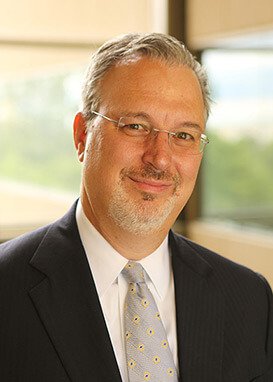
CAN I COLLECT ON MY DECEASED SPOUSE'S LOANS?
As Americans, we often want bigger, nicer, more expensive things that we don't have the cash for upfront. We like to live in proper homes and drive reliable cars, even if we need to take out loans for them.
But what happens if someone passes away before their debt is paid off? Or, what if someone loans a friend money and that friend dies before the loan is paid off? Can someone else collect on these debts?
If your loved one dies and you believe they were owed money at the time of their death, keep the following in mind:
The debt doesn't die with the debtor
The estate of the decedent can collect the debt
Look for documents that prove a debt was owed and terms of repayment
Be aware of your responsibilities and executor or trustee
Seek the help of an attorney
Does the Debt Die with the Person?
The fact that someone dies doesn't mean that the outstanding debt owed to them disappears. Even though your loved one is no longer alive, the creditor's debt is still owed to their estate. In fact, a debt owed to the estate is considered an asset (i.e., money and property) of the estate. The estate is entitled to collect the debt as part of the probate process. Similarly, if the debt is owed to the deceased person’s trust, the trust’s right and obligation to collect the debt continues after the trustmaker’s death.
Who Can Collect the Debt?
Before anyone can act on behalf of a deceased person’s estate, they must be appointed by the probate court. If the deceased person had a will, they probably named someone they trusted to act as their executor. If the deceased person didn't create a will, a family member can petition the court to be named as administrator of the estate. Once appointed, the executor or administrator must act on behalf of the estate and collect the debt. Similarly, if a debt was owed to a deceased person’s trust, the successor trustee must try to collect the amount owed to the trust.
How Can an Executor or Trustee Discover If the Deceased Person Was Owed Money?
If the executor or trustee is the deceased person’s spouse, they may be very familiar with the decedent's finances. A non-spouse executor or trustee may be less knowledgeable. All executors or trustees should examine the deceased person’s important papers and financial records to determine if there is any evidence that money was owed to the decedent. They should look for written loan agreements or other contracts that provide clear evidence of both the existence of debt and the terms of repayment. Yet, even if there is no formal contract, other written evidence may be available. For example, look for emails and texts demonstrating that someone owed money to the deceased person. These pieces of evidence may be used to establish the existence and terms of the debt. Lastly, documents and checks showing the existence of a debt that someone made regular payments on can also be used as evidence.
What Happens After the Debt Is Discovered?
The executor or trustee who discovers such debt should first find out if any amounts are outstanding (i.e. amounts that were due at the date of death). For example, let's say Bob made a loan of $5,000 to his friend Julie. Julie was obligated under the loan agreement to make monthly repayments of $250 on the 15th of each month until the loan was repaid in full in December 2024. If Bob passes away in January 2024, the executor would need to determine if Julie was current on her payments, collect any monthly payments she owed at the date of Bob’s death (including interest), and monitor future payments.
Once the executor or trustee is aware of a debt that is owed to the deceased person’s estate, they should provide a formal written notice to the debtor that the deceased person has passed away. This letter should include the date of death, that the estate is their new creditor, and that future payments should be made to the estate via the executor or trustee. The notice should also include the executor or trustee’s name, address, and any other information needed to facilitate payment of the debt.
What If the Debtor Will Not Pay the Amount Due?
If collection efforts are unsuccessful, the executor or trustee may need to seek the help of a lawyer. A lawyer can help send a demand letter to the debtor, and if that doesn't work, file a lawsuit on behalf of the estate.
Our Experienced Estate Attorneys in Dublin, OH Can Help
If your loved one has passed away, we can help guide you through the probate process. We represent executors, administrators, beneficiaries, and other related parties. Likewise, if you are the successor trustee, we can help you administer your loved one’s trust.
One of the important duties of an executor or administrator is to collect, protect, and prepare an inventory of all the assets in the deceased person’s estate. Trustees similarly have a duty to maintain records relevant to and to collect debts owed to, the deceased person’s trust. Seeking help from an experienced estate attorney can help put your mind at ease by helping ensure that you fulfill all your duties during this stressful and emotional time. If you would like help, call us today at 614.389.9711 to set up an appointment.
 About the Author - Gregory S. DuPont, JD, CFP
About the Author - Gregory S. DuPont, JD, CFP
Greg has been serving clients as an estate and tax planning attorney in Ohio since graduating from Capital University Law School in 1992. He obtained an accounting and finance degree from The Ohio State University. As a Certified Financial Planner, a designation that requires advanced coursework in a complete range of financial subjects, he is a rare financial professional who can provide cross-disciplinary solutions from the legal, tax and investment perspectives.
Greg is the co-author of the book: Protecting Your Future with Tax-Free Long-Term Care, and is a contributing author in Jack Canfield's best selling book The Recipe for Success.
He has been named one of Ohio's Top 100 lawyers, an invitation-only designation given by The National Advocates.
